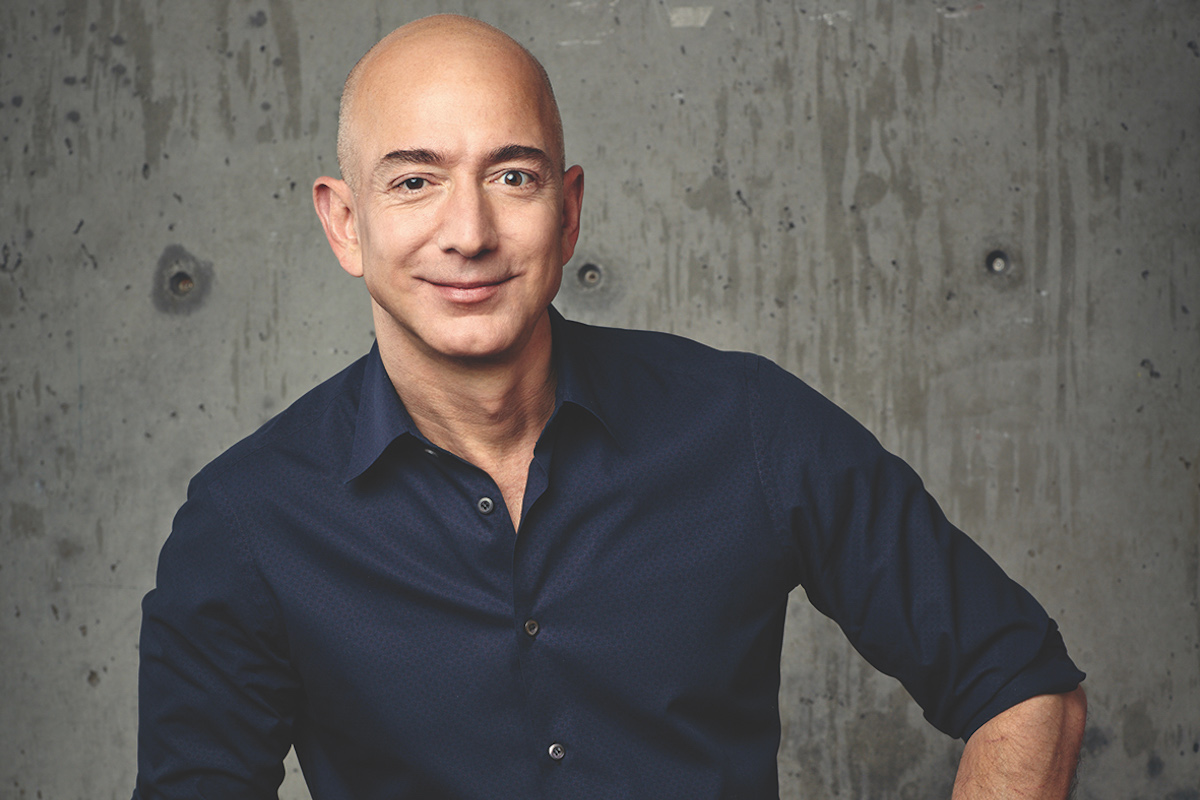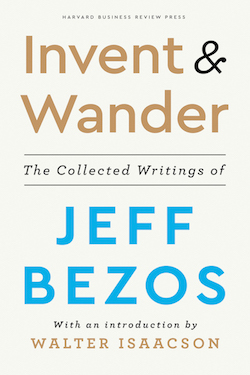5 Fascinating Business Lessons From Amazon Founder Jeff Bezos

What do Leonardo Da Vinci, Benjamin Franklin, Ada Lovelace, Albert Einstein, Steve Jobs and Jeff Bezos have in common? They’re all “true innovators”, according to Walter Isaacson, the esteemed journalist and former Time magazine editor who has written biographies of all but the bazillionaire Amazon founder.
Isaacson has however authored the introduction to Invent & Wander: The Collected Writings of Jeff Bezos, a new book published this month. Bezos, like Jobs, has “transformed multiple industries”, Isaacson writes, from shopping (the world’s largest online retailer, physical locations with “Just Walk Out” till-free tech) to cloud computing (Amazon Web Services), media (Oscar-winning Amazon Studios, buying newspaper The Washington Post) to space travel (Blue Origin, his own private NASA, and its reusable rockets).
Also like Jobs, Bezos is a controversial figure, his conduct and that of his empire often criticised. But there’s no arguing with the size of Amazon, which earlier this year joined Apple, Alphabet and Microsoft in passing the $1 trillion market capitalisation mark. Below are some of the biggest Bezosian business lessons from Invent & Wander – which, given that it’s nearly half-price, with free delivery on Prime, is hard not to order from Amazon.

Obsess Over Customers
“I constantly remind our employees every day to wake up terrified,” Bezos writes. “Not of our competition, but our customers.” Focusing on staying ahead of your rivals might cause you to slow down when in front, but customers are always “divinely dissatisfied”: yesterday’s “wow” is today’s “ordinary”. Something that might seem bad from a business perspective like lowering prices, giving free delivery, or allowing negative reviews on products, is good for customers. And what’s good for them is ultimately good for shareholders.
A Culture Of High Standards
“Leaders have high standards,” the Amazon Leadership Principles state. “Many people may think these standards are unreasonably high.” But a new team member will, Bezos, says, quickly adapt. High standards are teachable, which is handy because they’re also “domain-specific”: having them in one area doesn’t mean you automatically do in others. (Learn them.) They require an understanding of what good is and how much work that will take (“the scope”). They help attract and retain talent. And, Bezos insists, they’re “fun”.
High-Velocity Decision-Making
Decisions that are highly consequential and irreversible – what Bezos calls “one-way doors” or “Type 2” decisions – require lengthy deliberation.
“When a difference of opinion threatens a stalemate, Bezos will either overrule or agree to “disagree and commit”: ‘We’re going to do it your way. And I promise I will never tell you I told you so.’”
But even though most decisions are reversible if they turn out to be the wrong call, big companies end up using this “heavyweight process” for all: “Which is a disaster.” And when a difference of opinion threatens a stalemate, Bezos will either overrule or agree to “disagree and commit”: “We’re going to do it your way. And I promise I will never tell you I told you so.”
Multiple Paths To Yes
Where good ideas die on one of the many levels they have to pass through at other organisations, at Amazon they can be signed off by any one of hundreds of empowered executives. The many failed experiments are paid for by the few big wins. If you know where you’re going, says Bezos, you can be efficient, which wandering is not. But wandering is also not random: it’s guided by “hunch, gut, intuition and curiosity” and an “essential counterbalance” to efficiency that leads to outsized, “nonlinear” discoveries.

Don’t Do PowerPoint (Or Any Other Slide-Oriented) Presentations
Amazon meetings begin with attendees all silently reading their copy of a “narratively structured” six-page memo “in a kind of study hall”. Writing a memo through takes time, multiple edits and team member inputs, but forces thinking through with clarity, plus consideration of the interconnectedness and relative importance of ideas. And having gone from personally packing books and driving them to the post office to being the first person in history worth $200 billion, Bezos understands full well the power of storytelling.
Invent & Wander: The Collected Writings Of Jeff Bezos (Harvard Business Review) is out on 17 November.


















